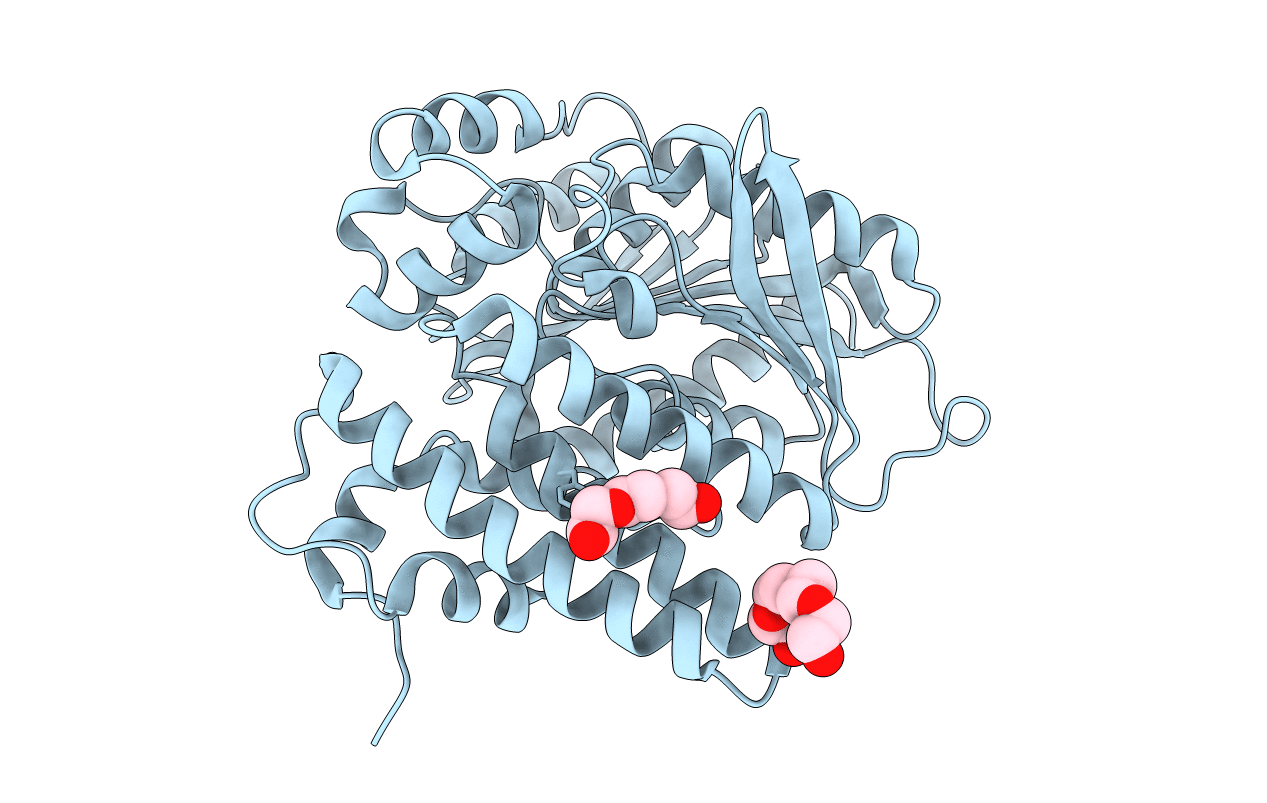
Deposition Date
2018-10-16
Release Date
2019-08-07
Last Version Date
2024-05-01
Entry Detail
PDB ID:
6HXA
Keywords:
Title:
AntI from P. luminescens catalyses terminal polyketide shortening in the biosynthesis of anthraquinones
Biological Source:
Source Organism(s):
Photorhabdus luminescens (Taxon ID: 29488)
Expression System(s):
Method Details:
Experimental Method:
Resolution:
1.85 Å
R-Value Free:
0.20
R-Value Work:
0.16
R-Value Observed:
0.16
Space Group:
C 2 2 21


